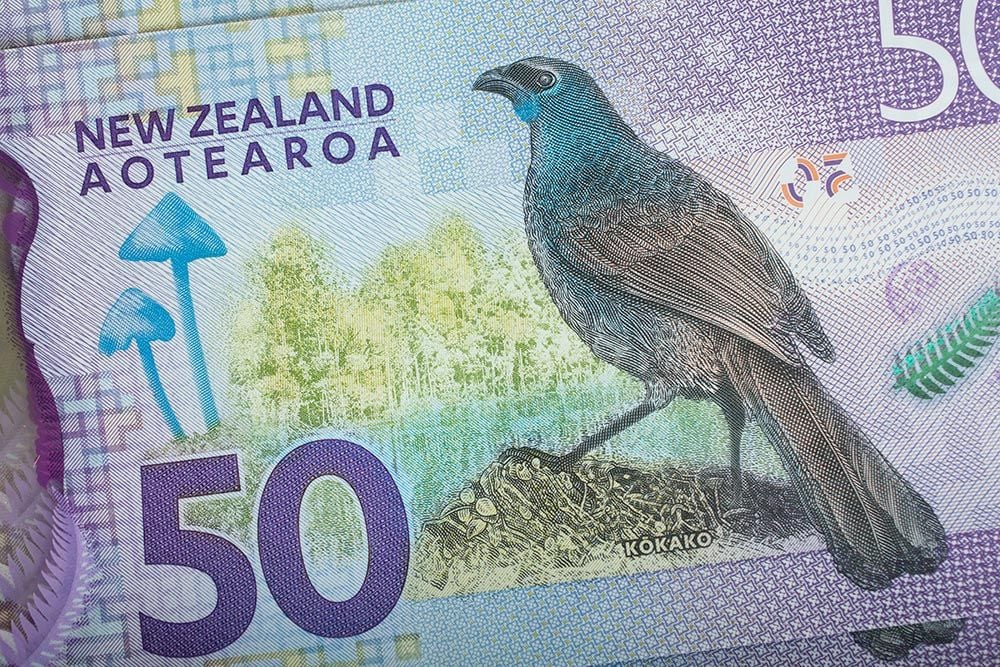Further New Zealand Dollar Strength Expected

Image © Adobe Stock
- GBP/NZD spot rate at publication: 1.9399
- Bank transfer rates (indicative guide): 1.8723-1.8860
- FX transfer specialist rates (indicative): 1.8795-1.9266
- More information on securing specialist rates, here
The New Zealand Dollar is being tipped to rally against the U.S. Dollar and other major currencies as foreign exchange markets react to the reality that the Reserve Bank of New Zealand might be amongst the first in the world to tighten its policy settings.
In addition, new research shows that the currency might benefit from rising commodity prices and the prospects of a relatively rapid vaccine rollout in New Zealand owing to the country's small population.
But the immediate focus and risk to the currency falls with the Reserve Bank of New Zealand (RBNZ) meeting due on February 24.
"The recent performance of the New Zealand economy has placed the RBNZ in pole position to normalisation," says Daniel Been, Head of FX Research at ANZ. The New Zealand lender recently told clients they were no longer expecting the RBNZ to cut rates owing to the better-than-expected position the economy finds itself in.
Policy normalisation at the RBNZ would involve exiting it quantitative easing programme and signalling the potential for future interest rate rises.
The foreign exchange playbook says that a when a central bank signals such a shift the currency it issues appreciates in value.
The New Zealand Dollar would therefore be poised to gain if the RBNZ sent such a signal, particularly given the overwhelming consensus amongst central banks is to keep a laser-like focus on keeping policy supportive and their currencies weak.
{wbamp-hide start} {wbamp-hide end}{wbamp-show start}{wbamp-show end}
"It is likely that most central banks will wait for the cover of a more hawkish Fed to start recalibrating policy," says Been.
The RBNZ will not want to be an outlier and risk a sizeable rally in the New Zealand Dollar which would potentially start acting as a headwind to economic growth, therefore Governor Orr and his team will attempt to emphasise the risks that litter the road ahead and the need for an easy policy conditions to remain in place for the foreseeable future.
But what matters for NZ Dollar exchange rates though is whether the market buys what he says.
"As we move through 2021, the global economy will mend, with aggressive fiscal policy and a quickening vaccine rollout. The policy focus is likely to turn to economies where stimulus levels no longer align with improving economic reality," says Been.
Stephen Gallo, European Head of FX strategy for BMO Capital Markets, is sceptical on the RBNZ's ability to ease policy further saying that while it could enact a micro cut to keep a lid on the rising value of the NZ Dollar, it actually has little ammunition.
He observes the RBNZ faces liquidity constraints in the bond market and is already scaling back its quantitate easing as a result.
The RBZN proved to be a major factor in the decline in the value of the NZ Dollar through to mid-2020 as policy makers threatened to cut interest rates to 0% or below in order to support the economy.
But the economy's resilience through the pandemic means the RBNZ has had to abandon this stance and turn, thereby offering the currency support. "NZ has fared better with the pandemic than other advanced economies, although it has needed strict lockdowns to achieve that success," says Gallo.
But there are other potential drivers of New Zealand Dollar strength to consider.
"NZD has room to rally further alongside commodities," says Gallo.
Secure a retail exchange rate that is between 3-5% stronger than offered by leading banks, learn more.
The New Zealand Dollar is defined as a 'commodity currency' owing to the country's reliance on commodity exports, namely agricultural commodities.
Therefore how the New Zealand Dollar performs over coming weeks and months could well rest with how broader commodity market dynamics evolve.
The China-driven boom in commodity prices in the second half of 2020 also played a role in aiding NZ Dollar valuations higher, and should this trend continue then further appreciation might be expected.
"NZD rallied ahead of commodity prices in 2020, but agricultural commodity prices have now more than caught up to the NZD rally. Repressed energy imports helped flip the country’s trade balance to positive in 2020 and the trade surplus is likely to improve in 2021, although foreign interest and dividend payments are likely to keep the current account in deficit," says Gallo.
With vaccine rollout playing a decisive factor in the performance of many currencies, particularly in the case of the British Pound, how New Zealand approaches the vaccine rollout could also prove crucial.
BMO Capital say New Zealand's small size should make general inoculation proceed more quickly than elsewhere too, "although re-opening the tourism sector may not happen this year".
New Zealand is expected to commence its vaccination programme this weekend, with border agency staff in line to receive the first doses ahead of a rollout to the general population.
However, the government says vaccination of the wider population will only begin in the second half of the year and the programme is expected to take six months to a year.
This would nevertheless see the country achieve inoculation ahead of the Eurozone and the U.S.
A vaccine rollout would further underpin the view of the New Zealand economy being poised to further outperform peers.
"The rest of the service sector, and all of the goods-producing sector, should recover much faster than the rest of the world," adds Gallo.





